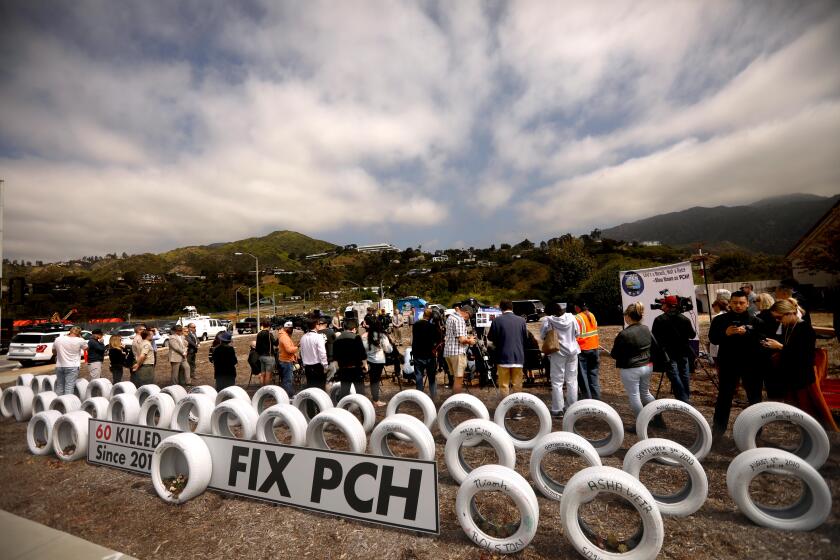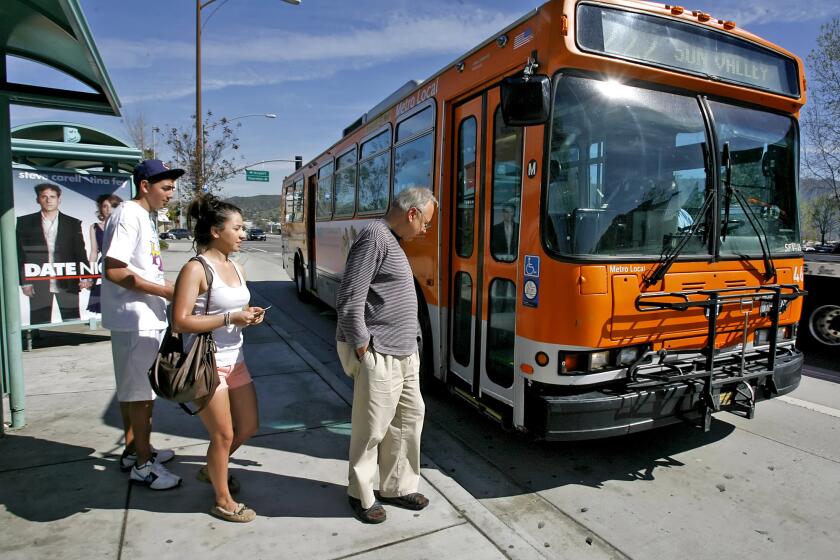Our Ticket for the Global Future
With California’s importance in the presidential election, we are about to be treated to a debate on the wisdom of global trade. In Southern California, this debate should not linger long. Global trade is creating jobs by the tens of thousands, as a recent economic study commissioned for the Los Angeles International Airport master plan shows.
The 66-year-old airport is directly responsible for contributing more than $43.5 billion to Southern California’s economy per year and for nearly 393,000 jobs. The airport contributes $15 billion to the economy of the city of Los Angeles alone and has created 150,000 jobs within the city. Aside from the 50,000 people who work as employees of airlines, cargo shippers, concessionaires and the Department of Airports, these jobs come from manufacturing--electronics, medical equipment, garments, toys, software and entertainment and a nearly infinite variety of miscellaneous finished goods, from lighting fixtures to golf clubs.
While other states are having a hard time keeping manufacturing jobs, out here, we are growing them. Southern California’s manufacturing output was about $160 billion in 1994, more than half of which was manufactured for overseas and out-of-state export. Between 50% and 55% was shipped by air.
Airline passenger spending, which includes tourism, plays a vital role too. Again, according to the master plan, airport users spent $7.9 billion in Southern California in 1994 and thus directly supported jobs for about 139,000 people.
The protectionist and isolationist trade policies being bandied about on the national political scene would effectively cut Los Angeles off from one of its most fruitful sources of economic growth. The extreme, nativist rhetoric that has occasionally marked the presidential primary campaign also puts the United States in a bad light globally, at the expense of local jobs that depend on international tourists and business travelers.
What is needed is a recognition that the United States is part of a busy and flourishing global economy, and that Los Angeles now prospers because it is at the center of the fastest-growing portion of that economy.
Specifically, we need to update and upgrade Southern California’s trade infrastructure. Aviation demand forecasts conducted for the LAX master plan tell a story that should concern us about how long the local trade boom can last: In 1994, LAX served 51 million passengers and handled 1.7 million tons of cargo. Estimates are that in 2015 the demand for LAX services will reach 98 million passengers annually and 4.2 million tons of cargo. This would translate into the direct employment of more than 470,000 people--if LAX can accommodate it.
These figures contemplate growth in other regional airport facilities, including Orange County, Riverside and San Bernardino. LAX does not and will not compete with other regional airports. No matter how many new airport facilities open in the next decade, the region will be hard-pressed to meet the aviation demand.
The rising demand at LAX is a sign that the Los Angeles economy is fundamentally strong. But we may never see all those benefits. LAX’s gates, terminals, airfields and ground access are all fast approaching the saturation point.
As the only international airport in the region, LAX cannot be allowed to become gridlocked. If we do nothing to expand the airport, we will cost ourselves close to 360,000 jobs by 2015. Those jobs will go to other cities.
Some observers already fear that any plan to expand LAX will be shot down by a revival of provincial “no-growth” fever. But I am convinced that as the people of Los Angeles come to realize the vast numbers of jobs at stake, we will find a way to expand LAX while preserving the environment and enhancing the quality of life for the airport’s neighbors.
It will be a challenging, complex task to balance competing objectives but it is vitally important to our future. LAX’s actual and symbolic role as a gateway for world global tourism, trade, finance and commerce cannot be underestimated. If we fail to make the right choices, Los Angeles’ future economic prosperity will be compromised.






